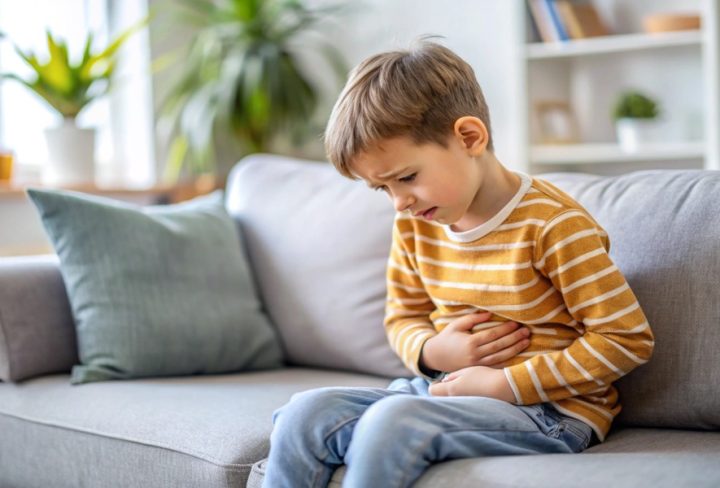Ensuring your child’s health and well-being is always a top priority, and one crucial aspect of childhood healthcare is deworming. Intestinal worm infestations, common in regions with poor sanitation or contaminated environments, can lead to a range of health issues in children, such as malnutrition, anemia, and stunted growth.
Albendazole is a widely prescribed antiparasitic medication that effectively eliminates harmful intestinal parasites and protects your child’s health.
This guide provides an overview of Albendazole’s usage in children, the deworming process, and tips to maintain your child’s health post-deworming.
What is Albendazole?
Albendazole is an antiparasitic medication used to treat various intestinal worm infections, such as roundworms, hookworms, whipworms, and tapeworms. It works by preventing the parasites from absorbing sugar, leading to their death. The body then expels the dead parasites naturally through bowel movements.
Albendazole is typically given as a single dose, but in some cases, it is repeated after a few months, depending on the parasitic infection and the health guidelines in the region.
Importance of Deworming in Children
Children, especially in preschool or early school years, are more vulnerable to intestinal worm infections due to their tendency to play in dirt or contaminated environments. They can ingest worm eggs through contaminated water, or food, or by putting unclean hands into their mouths. If left untreated, intestinal worms can:
– Cause malnutrition: Worms feed on the child’s nutrients, leading to deficiencies.
– Lead to anemia: Certain parasites, such as hookworms, attach to the intestines and feed on the child’s blood, causing anemia.
– Stunt growth: Malnutrition and anemia can impair a child’s physical and cognitive development.
– Trigger digestive issues: Worm infections may cause abdominal pain, nausea, bloating, and diarrhea.
Regular deworming with Albendazole ensures children remain free from the harmful effects of parasitic worms and continue to grow healthily.
When Should Albendazole Be Given to Children?
In many regions, public health campaigns recommend routine deworming for all children at regular intervals, typically every six months. However, there are signs that your child may benefit from Albendazole, including:
– Persistent stomach pain, diarrhea, or bloating.
– Loss of appetite or poor weight gain.
– Itching around the anus, which may indicate a pinworm infection.
– Visible worms in the stool.
It’s essential to consult a pediatrician before starting any deworming treatment if your child is showing symptoms of a parasitic infection.
Administering Albendazole to Children
Albendazole comes in chewable tablets and oral suspension forms, making it easier for children to take. Here’s how it is typically administered:
– Dosage:
– For children aged 1 to 2 years: A single dose of 200 mg.
– For children aged 2 years and older: A single dose of 400 mg.
– Administration:
– Albendazole can be given with or without food but is generally recommended after meals to enhance absorption.
– Chewable tablets should be chewed thoroughly, while the suspension is easier for younger children to swallow.
– Ensure your child drinks plenty of water to help flush out the parasites.
In some cases, healthcare providers may recommend repeating the dose after six months, particularly in areas with high parasitic infection rates.
Potential Side Effects of Albendazole
Albendazole is generally well-tolerated in children, but some mild side effects can occur, including:
– Nausea or vomiting: As the body expels the worms, mild discomfort may occur.
– Dizziness or headache: These symptoms are typically temporary.
– Abdominal discomfort: Mild bloating or stomach pain as the worms die off.
– Diarrhoea: This is part of the process of expelling parasites from the body.
In rare cases, children may experience more severe side effects, such as allergic reactions, liver issues, or blood disorders. If any unusual symptoms occur, consult your doctor immediately.
Preventing Worm Infestations: Maintaining Good Hygiene
While Albendazole is effective in eliminating worms, preventing reinfection is just as important. Here are some key hygiene practices to help prevent worm infestations in children:
– Regular handwashing: Teach your child to wash their hands with soap and water before meals, after using the toilet, and after playing outside.
– Proper food hygiene: Ensure fruits and vegetables are thoroughly washed and cooked properly.
– Clean drinking water: Only provide clean, filtered, or boiled water for drinking.
– Trim fingernails: Worm eggs can get trapped under long nails, so it’s important to keep them short.
– Regular cleaning: Wash your child’s bedding, clothes, and towels frequently to avoid spreading worm eggs.
– Wear footwear: Encourage your child to wear shoes, especially in areas with contaminated soil.
Frequently Asked Questions About Albendazole and Deworming
1. How often should children be dewormed?
– In areas with high infection rates, children are usually dewormed every six months. However, this can vary depending on local health guidelines and the child’s risk of exposure.
2. Can Albendazole be given to infants?
– Albendazole is generally not recommended for children under 12 months unless prescribed by a doctor after assessing the risks and benefits.
3. Can Albendazole be taken during pregnancy?
– Albendazole is not recommended during pregnancy, especially in the first trimester. Consult your doctor for safer alternatives if deworming is necessary.
Conclusion
Deworming with Albendazole is a simple yet effective way to protect your child from parasitic infections. By combining deworming with good hygiene practices, you can ensure your child remains healthy and free from the harmful effects of intestinal worms. If you suspect your child may have a worm infection or it’s time for their routine deworming, consult your pediatrician to determine the best course of action. Regular deworming is a small but essential step towards securing your child’s future well-being.

